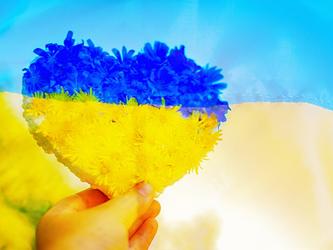‘We realised how multidimensional the world really is': Market research in Ukraine
I am Ukrainian, and I am eternally grateful to our army and all those who have made it possible for me to live at home, in my beloved city of Kyiv.
Each stage of the war brings new challenges to our lives and businesses. I’ve been conducting local and international qualitative market research for 27 years and I run my own small agency in Ukraine.
At the beginning of the war, marketing was far from being a priority. But as soon as businesses resumed work, they began to ask questions that only customers could answer, and our industry slowly began to revive.
Given the air raids and missile attacks, our first challenge was to ensure the safety of respondents. We mainly conducted online, in-depth interviews, arranged to be flexible in case we needed to pause or reschedule the interview so a respondent could go to a bomb shelter.
The winter power outages were another challenge; we started doing more research offline, either at the office or in a cafe. It was a valuable experience that reinforced my belief that no technology can replace live conversations with people.
Fortunately, there are no longer any power outages in Kyiv, and air-raid sirens are becoming less frequent.
But even while the situation in Kyiv and much of Ukraine has improved a little, the war continues, with heavy fighting on the front lines and shelling along the Russian border. Our challenges are now about reaching a more complex level of interaction between humanity, ethics and business.
Challenge one: Cope with the coexistence of multiple realities
When I was in Amsterdam recently, to speak at a conference, I received a call from a client in Germany, who said: “We have a request for a pack study in Ukraine. We were about to refuse the project, explaining to the client that people in Ukraine during the war were not up to discussing flowers on packaging. But I decided to call you first and ask what you think.”
Foreign clients often assume that conducting market research in a warring country is unethical. I am continuously trying to persuade them of the opposite.
During the war we realised how multidimensional the world really is. Our main challenge nowadays is to cope with the coexistence of different realities.
On the one hand, Ukraine is experiencing a terrible tragedy. For more than a year, almost every day we have seen violence, death, destroyed cities and destroyed lives.
On the other hand, Ukrainians – together with our allies – have been doing everything possible and impossible to stop this invasion and live a normal life in our land.
People abroad typically see one side of the coin. For foreigners, Ukraine is now associated only with the terrifying military reality. But Ukraine is a really big country and, in 80% of our territory, people are doing everything possible to live a normal life.
Looking from abroad at the tragedy that Ukrainians are experiencing, it is logical to think that now is not the time to talk to people about chocolate packaging or the taste of beer. But living in Ukraine, people really need that sense of a normal life, so they gladly agree to take part in market research. Obviously, we are not talking about the occupied territories and regions on the front line.
Ukrainians have an incredible thirst for life. We live. We work. We create. We eat chocolate and we drink beer. And, at the same time, we fight. It’s our modern reality.
Challenge two: Truly put people ahead of business
All Ukrainians have been wounded in some way by the war, and these wounds will not heal soon. We are sensitive and fragile, easily moved to tears, quickly offended and irritated.
We’ve already learned how to truly love and hate. We began to cry more frequently, but also to laugh more heartily.
I frequently reflect on how much more responsible the work of a moderator in qualitative market research has become, not only in terms of business, but also humanity. Indeed, our job has always been responsible because people open their souls to us, but now our responsibility increases.
Many marketers, researchers and moderators enjoy digging deep into people’s subconscious, asking tricky questions to get ‘deep insights’, and so on.
Today, more than ever, we must be more empathetic. We must think twice about the consequences of questions that before the war seemed completely harmless.
We have to keep as neutral as possible when we hear an opinion with which we disagree, no matter how difficult it may be.
We have to support, sympathise and hug. Our work nowadays in Ukraine is not just about business. It is primarily about people and for people.
Challenge three: Relearn the local specifics
Ukrainians have impressed the world. Ukraine turned out to be a nation with many unknowns; difficult to understand even for ourselves, and certainly worth investigating deeper.
During the past 16 months of the war, our value priorities have changed: we develop new perceptions, behaviours and habits and we decode and interpret many symbols differently. For example, what image comes to your mind when you hear the word ‘tractor’? Do you know what Ukrainians immediately imagine? We see a picture of a tractor pulling a tank captured from Russians.
So, it becomes crucial for marketers now to reinvestigate the target customers, their behaviour in a category, and their perception of brands and communications.
- Category: Have people’s perceptions, needs and behaviours changed during the war? Are those changes forced and temporary, and will people return to their past habits at the first opportunity? Or are these changes long term – or even permanent?
- Brand: What do Ukrainians continue to appreciate about brands, even in these challenging times? Why do people leave brands and what do they find in the alternatives chosen?
- Communications: How are your brand identity and communications perceived nowadays? Consider that words, messages, visual codes and symbols may trigger different connotations today than before the war.
There is absolutely no doubt that Ukraine will cope with all the challenges it faces. So, start investigating Ukraine and Ukrainians now, to be better prepared than your competitors. And welcome to Kyiv.
Oksana Pleskova is owner at Mustang Research and Consulting

We hope you enjoyed this article.
Research Live is published by MRS.
The Market Research Society (MRS) exists to promote and protect the research sector, showcasing how research delivers impact for businesses and government.
Members of MRS enjoy many benefits including tailoured policy guidance, discounts on training and conferences, and access to member-only content.
For example, there's an archive of winning case studies from over a decade of MRS Awards.
Find out more about the benefits of joining MRS here.













0 Comments